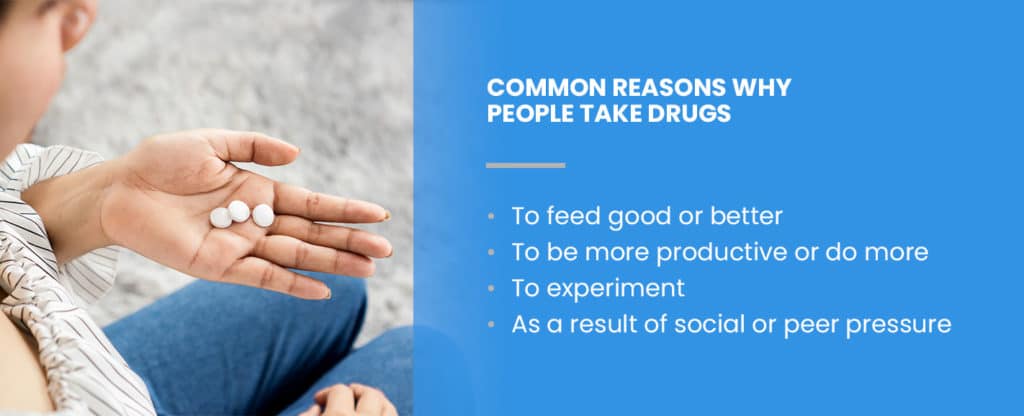
Is drug addiction a disease? Yes, it’s not a choice. Many people still do not know that substance use disorder is a chronic illness.
Understanding addiction and its consequences continues to evolve every year. Is drug addiction a disease that not many people understand? That is, at least, not nearly as much as they think they do.
The good news is that chronic addiction is treatable, just like any other disease. With the right resources and help to guide you or a loved one, addiction recovery is possible for everyone.
If you are looking to learn why drug addiction is a disease and the harm of opioid addiction, keep reading.
Understanding Drug Addiction
The National Institute on Drug Abuse (NIDA) defines addiction as a chronic disorder causing a person to seek and use drugs despite the negative consequences. Furthermore, they describe addiction as a brain disorder due to the drastic changes in brain functions and circuits.
Drugs can create this dramatic change in the functions of our brains within the first few exposures to certain substances. However, it is much more common for people to develop substance use disorder over time. With repeated use, the body produces a chemical dependency, which can quickly spiral into addiction.
Many often wonder why and how people get addicted to drugs in the first place. Is drug addiction a disease? Yes, and understanding this is important to recognize why people take drugs despite potentially knowing the harmful and dangerous consequences.

The most common reasons include:
- To feed good or better
- To be more productive or do more
- To experiment
- To cope with stress, trauma or anxiety
- As a result of social or peer pressure
Whatever the reason, the initial choice to take a drug is usually voluntary. Still, after the user achieves the euphoria or desired result, it may lead to continual use.
The most common effects of drug addiction are:
- Weakened immune system
- Worsened mental illness
- Stroke
- Liver disease
- Blood infections
- Digestive issues
- Inability to work
- Frequent lying
- Loss of money
- Worsened physical appearance
- Broken relationships
- Frequent accidents
- Potential overdose
This list goes over the effects that people with developing addiction experience, both physically and psychologically. Substance use disorder does not just affect your health but your entire life. It is very difficult to remain a functional member of society when battling addiction. However, many people manage to hide their disease for some time before they succumb to some greater effects.
Why Is Drug Addiction Considered a Disease?
Drug addiction is a brain disorder due to the fundamental changes drugs create in the brain. Is drug addiction a disease? Yes, it is identical to other chronic diseases in how it affects the body. Consider how other illnesses like cancer or autoimmune diseases impact people.
Through the changes it creates, drug addiction causes severe damage to the mind and healthy functioning organs. Both addiction and other diseases can lead to severe and detrimental symptoms that could follow you for the rest of your life. If left untreated, both will put your life, or the lives of your loved ones, at serious risk.
Additionally, drug addiction is not simply a moral choice; it is called an addiction for a reason. The changes that drugs make to your brain create a constant need to seek out and take more of the substance. This eventually becomes entirely outside of the conscious control of the user.
In the same way that you cannot sleep off a serious illness overnight, you cannot simply choose to stop your addiction. The initial choice to take the drug may be your own, yes. However, the brain changes from addiction, and how it rewires itself is not up to you.
On a brighter note, addiction is mainly preventable and treatable with various addiction treatment methods. Like with other diseases, the earlier the addiction is identified and treated, the better the outcome. Understanding why drug addiction is a disease is the catalyst for many to get help.
Current addiction recovery programs are evidence-based and use FDA-approved medication along with addiction counseling. With state-of-the-art medical facilities, most people who enroll in treatment recover.
Opioid Addiction Effects
Opioid addiction is currently still the number one substance use disorder that plagues Americans. Currently, we are on the fourth wave of the opioid epidemic and fighting the invasion of fentanyl tooth and nail.
The fatal harm of opioid addiction is overdose. An opioid overdose occurs when the drug overwhelms and interrupts the brain’s and body’s natural ability to breathe. You can identify if someone is experiencing an opioid overdose based on their breathing. It is time to act if it is slow, shallow, irregular, or stopped altogether. Especially if their face color has turned paler, they are unresponsive to stimuli, and more.
On a day-to-day basis, opioid addiction can have several adverse effects on how you operate and experience things. You may experience mental fog, nausea, and constipation. In addition to potentially developing a dependency on the drug, these symptoms can create significant disruptions in your life. Working, balancing family life, and maintaining relationships with friends is difficult.
Unfortunately, many people with untreated opioid use disorder often lose everything important to them. They lose their jobs, money, family, and friends. Many will find themselves at their “rock bottom” (although that step is not necessary) before they seek help.
Is Addiction a Disease that Requires Treatment
The superior opioid addiction treatment method is called Medication-Assisted Treatment (MAT). This treatment method is essentially a developed way of tackling addiction through both medication and counseling. It has proven to be the most effective way to treat the disease of addiction, with the highest chances of success.
Some of the medications you can expect to take while undergoing MAT are buprenorphine and naloxone, as well as methadone. These medications relieve opioid withdrawal symptoms and curb cravings, making it much easier to abstain. Many people who attempt to stop using opioids on their own cannot get past the severe withdrawals and relapse shortly after.
Medication-assisted treatments like Suboxone essentially block the euphoric and addictive effects of opioids. In addition to medication, you can expect to have several counseling sessions with a trained and licensed substance use counselor. These can range from individual sessions to group sessions, both of which are beneficial for your path to recovery. With this kind of recovery program, people are less likely to relapse or severely overdose.
Medication-Assisted Treatment for Addiction with Applegate Recovery
It is crucial to know when it is time to seek recovery. If you or a loved one misuses opioids and displays any symptoms that indicate an opioid addiction, make the call. Contacting a reputable addiction treatment center is the first step. From there, a medical provider or counselor will guide you on the course of action that works best for you.
Opioid addiction recovery is possible for everyone, no matter how long you have been meaning to get help. The dependable professionals at Applegate Recovery want to help you take the first step and enroll in MAT. Our trained team of experts and personalized treatment programs will help you take back ownership of your life. Being a medically assisted treatment center, we have a proven track record of doing just that. If you are ready to get started or have questions, contact us today and we will get you on your way.
Drug Addiction Disease FAQs
Does the CDC recognize addiction as a disease?
Yes, the Centers for Disease Control and Prevention (CDC) recognize addiction as a complex chronic disorder that can affect brain function and behavior.
What is the drug addiction disorder called?
Drug addiction disorder is commonly referred to as substance use disorder (SUD).
Is addiction a physiological disease?
Yes, addiction is considered a physiological disease because it involves both physical and psychological components that affect brain functions.
Is drug addiction genetic?
Genetics can play a significant role in drug addiction. Studies have shown that genetic factors can contribute to the likelihood of developing an addiction.

Contact AppleGate Recovery Today
If opioid addiction is impacting your life or the life of someone you care about, reach out to our treatment center. We are here to provide the support and care you need to take the first step toward recovery.
Call 888.488.5337
